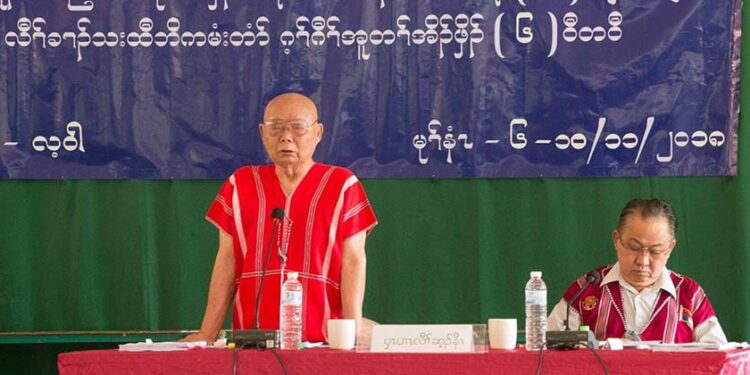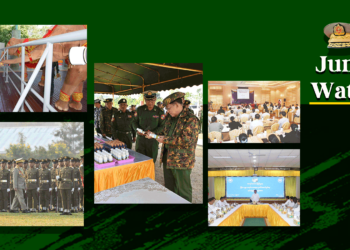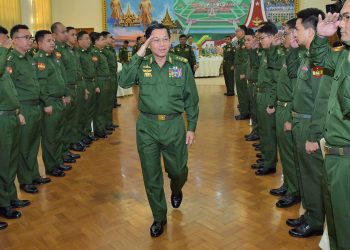CHIANG MAI, Thailand — Myanmar government peace negotiators and the Karen National Union (KNU) have vowed to resume formal peace talks as quickly as possible, after they were postponed late last month.
The KNU decided to pause formal peace talks in late October citing the need for further internal discussions in order to have meaningful participation in the peace process because of differences between their opinions and those of the government. The public and some stakeholders were worried that the halt in talks could trigger a restart of conflict in the region.
Some members of the KNU are concerned that the National Ceasefire Agreement (NCA) has drifted from its original purpose, which includes ensuring equality, self-determination in building a democratic federal union and effectively implementing the issues agreed in the NCA text.
The formal peace talks stalled until the KNU—within its own organization—agreed to return to the formal mechanism, but they decided last week to keep an informal channel open for negotiations.
Government spokesman U Zaw Hay, who is also director general of the State Counselor’s Office, said both sides would share the topics raised in their informal discussions with their superior leaders and that he hopes that formal peace talks can resume “in two or three months, or sooner than that.”
“Although we have this temporary suspension, we will try to be back on track with the normal peace talk mechanism as soon as possible,” he told reporters after talks with the KNU on Saturday afternoon.
The informal discussion with the KNU helped “reduce such concerns [of the public],” U Zaw Htay said, because both the negotiators of the government and the KNU share the same views on continuing to implement peace through the NCA.
The government’s negotiators, led by Peace Commission secretary and former lieutenant general U Khin Zaw Oo, were in Chiang Mai, Thailand for a series of informal talks with two key signatories of the NCA and two non-signatories at the weekend.
Padoh Saw Tadoh Moo, general secretary of the KNU told reporters that the KNU stands firm in continuing negotiations through the NCA, but that its implementation “must be right and just.”
Observers and the ethnic stakeholders had said that differing interpretations of the NCA by the government, the Tatmadaw (Myanmar military) and the ethnic armed organizations have made it harder for the process to keep going.
“The process of finding solutions to political problems through political means needs to be right and just. In the meantime, [both the KNU and the government] have to have basic principles in order to have a common view on the substance [of the agreement],” the KNU leader added.
U Zaw Htay added, as both sides respect the NCA, and they do not want it to drift, they agreed to try to have thorough mutual understanding for a successful NCA process.

















